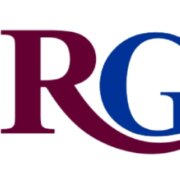Best Employment & Labor Lawyers in Botswana
Share your needs with us, get contacted by law firms.
Free. Takes 2 min.
Or refine your search by selecting a city:
List of the best lawyers in Botswana
About Employment & Labor Law in Botswana
Employment and labor law in Botswana is governed primarily by the Employment Act, which emphasizes fair labor practices and the protection of employees' rights. The Act covers various aspects of employment, such as contracts, wages, working hours, and termination procedures. It seeks to balance the interests of employers and employees while promoting a healthy work environment. Other key pieces of legislation include the Trade Disputes Act and the Workers Compensation Act, each addressing specific aspects of labor relations and workers' compensation.
Why You May Need a Lawyer
There are several situations where individuals or businesses might need to seek legal advice in the employment and labor sector in Botswana. Common scenarios include:
- Drafting or reviewing employment contracts to ensure compliance with local laws.
- Handling disputes related to unfair dismissal, discrimination, or harassment in the workplace.
- Negotiating collective bargaining agreements between employers and trade unions.
- Understanding complexities related to layoffs, redundancy, and severance packages.
- Resolving issues concerning wage disputes, overtime, and employee benefits.
- Representation during labor tribunal hearings or court proceedings.
Local Laws Overview
Employment and labor laws in Botswana are structured to address several key areas:
- Employment Contracts: Legal provisions require written contracts for clarity in employment terms and conditions.
- Wages and Working Hours: The minimum wage is regulated, and standard working hours are established, with overtime allowances stipulated.
- Termination of Employment: The law outlines procedures for fair termination, including notice periods and valid reasons for dismissal.
- Trade Unions: Employees have the right to form and join trade unions for collective bargaining purposes.
- Dispute Resolution: The Trade Disputes Act provides mechanisms for resolving labor disputes, including mediation and arbitration.
- Workplace Health and Safety: Employers are mandated to ensure safe working conditions and comply with occupational health standards.
Frequently Asked Questions
What is the legal minimum wage in Botswana?
The minimum wage in Botswana is set by the government and periodically reviewed. It varies depending on the industry and sector, ensuring workers receive a fair baseline remuneration.
How are employment disputes typically resolved?
Employment disputes in Botswana are commonly resolved through mediation, arbitration, or adjudication as guided by the Trade Disputes Act. Labor tribunals also play a crucial role in resolving such issues.
What rights do employees have regarding dismissal?
Employees in Botswana have protection against unfair dismissal. Employers must follow due process, including providing valid reasons and appropriate notice periods as specified by law.
Can foreign nationals work in Botswana, and what are the requirements?
Yes, foreign nationals can work in Botswana, but they must obtain a work permit. Employers are required to demonstrate that no suitably qualified local candidate is available for the position.
Are there specific laws regarding workplace harassment?
Yes, Botswana's labor laws address workplace harassment, including sexual harassment. Employers are encouraged to establish policies to prevent and address such issues.
How does collective bargaining work in Botswana?
Collective bargaining is facilitated through trade unions. The process allows employees to negotiate wages, working conditions, and other employment terms collectively with their employer.
What are the regulations regarding overtime work?
Overtime work is regulated, and employees are entitled to additional compensation for hours worked beyond the standard workweek. The rate and terms are typically specified by law or employment contracts.
Is severance pay mandatory in Botswana?
Severance pay may be required in cases of redundancy or dismissals related to employer insolvency, as per the Employment Act. However, it depends on the circumstances and length of service.
What recourse do employees have against discrimination at work?
Employees facing discrimination can file complaints through various mechanisms, including approaching labor offices or seeking legal assistance. Botswana's laws prohibit discrimination based on race, gender, religion, and other protected characteristics.
How often should employment contracts be reviewed?
While not mandated by law, it is advisable for both parties to review employment contracts periodically to ensure compliance with evolving laws and any changes in employment terms.
Additional Resources
Several resources can provide further assistance and information regarding employment and labor issues in Botswana:
- Ministry of Employment, Labour Productivity and Skills Development: The primary governmental body overseeing labor laws and employment practices.
- Botswana Unified Revenue Services (BURS): For taxation implications related to employment.
- Labour Advisory Board: Offers recommendations on labor laws and reviews proposed regulations.
- Botswana Federation of Trade Unions (BFTU): Provides support and representation for workers through trade unions.
Next Steps
If you find yourself in need of employment and labor legal assistance in Botswana, consider taking the following steps:
- Identify the specific nature of your legal issue to determine the type of legal expertise you require.
- Consult with a qualified employment lawyer to discuss your situation and explore legal options.
- Gather all relevant documents and evidence related to your employment issue in preparation for consultation.
- Engage with local labor offices or advisory boards for initial guidance and support.
- Explore mediation or arbitration as an alternative to court-based resolutions where appropriate.
Lawzana helps you find the best lawyers and law firms in Botswana through a curated and pre-screened list of qualified legal professionals. Our platform offers rankings and detailed profiles of attorneys and law firms, allowing you to compare based on practice areas, including Employment & Labor, experience, and client feedback.
Each profile includes a description of the firm's areas of practice, client reviews, team members and partners, year of establishment, spoken languages, office locations, contact information, social media presence, and any published articles or resources. Most firms on our platform speak English and are experienced in both local and international legal matters.
Get a quote from top-rated law firms in Botswana — quickly, securely, and without unnecessary hassle.
Disclaimer:
The information provided on this page is for general informational purposes only and does not constitute legal advice. While we strive to ensure the accuracy and relevance of the content, legal information may change over time, and interpretations of the law can vary. You should always consult with a qualified legal professional for advice specific to your situation.
We disclaim all liability for actions taken or not taken based on the content of this page. If you believe any information is incorrect or outdated, please contact us, and we will review and update it where appropriate.
Browse employment & labor law firms by service in Botswana
Botswana Attorneys in related practice areas.
Browse employment & labor law firms by city in Botswana
Refine your search by selecting a city.
















